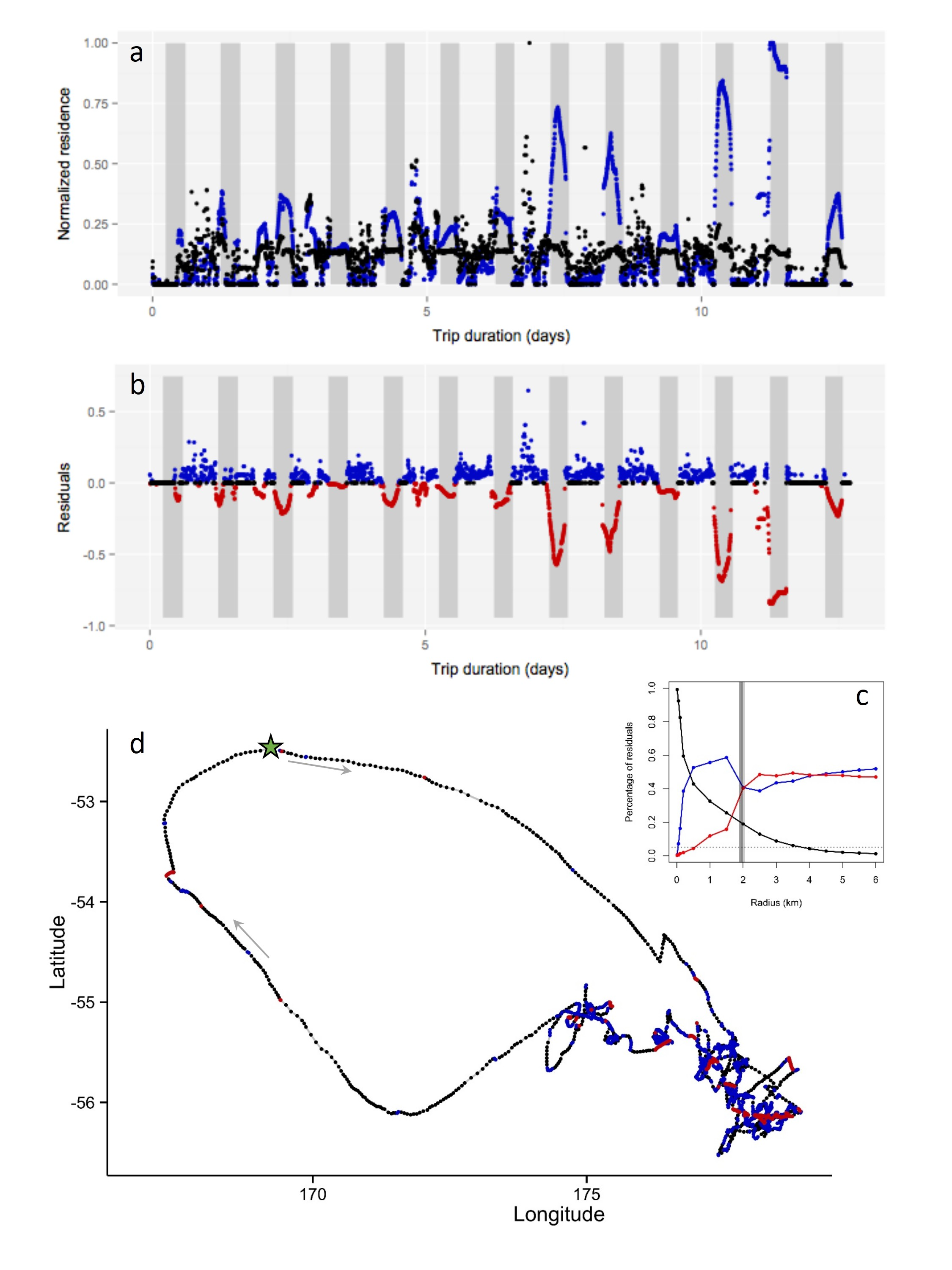Classifying Behavior States from GPS Tracking Data
This project was done in the summer of 2015 with Prof. Leigh Torres through an NSF REU program at the Hatfield Marine Science Center.

As high-resolution biologging technology becomes more readily accessible, there is a growing demand for methods of animal movement analysis. Previous studies have focused on evaluating area-restricted search (ARS) behavior within tracking data through time-dependent metrics, which can give erroneously high values for non-ARS behaviors. Furthermore, there have not been general, objective methods for classifying animal behaviors from tracking data. This study aims to improve current methods for evaluating ARS by introducing a metric based on distance rather than time. In addition, we develop a method for differentiating between major behavior states (foraging, resting, and transit behaviors), and discuss its use at various scales.
This project is described in my REU report, and resulted in a PLOS ONE publication, in which the proposed method is applied to track datasets across many taxa and regions.
You can also read more about the project on the website for the GEMM (Geospatial Ecology of Marine Megafauna) Laboratory.
